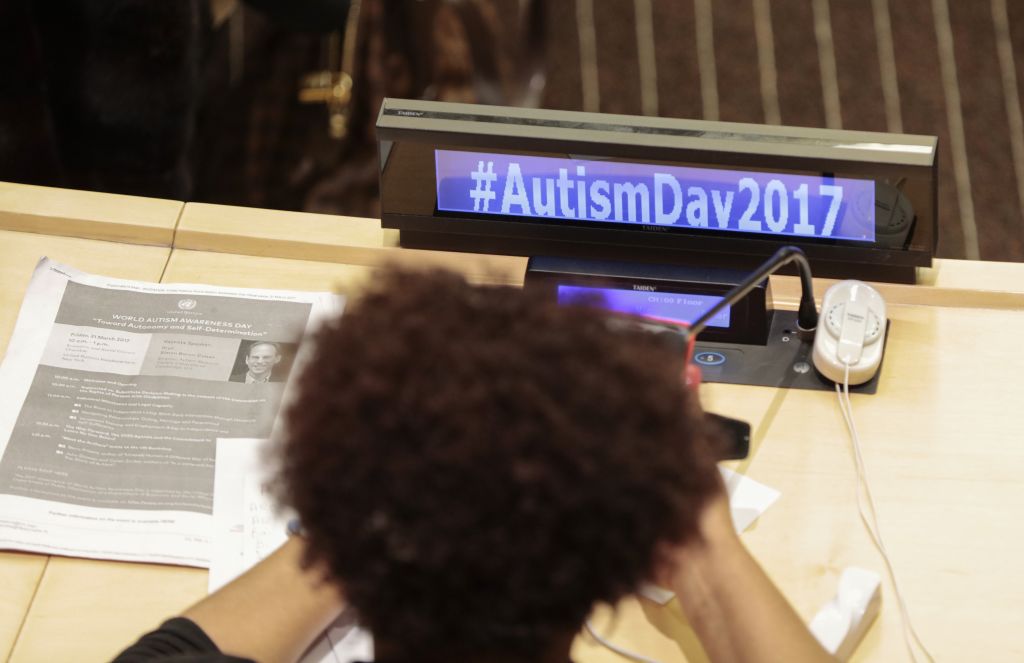Although I disagree with Donald Trump’s and Robert F. Kennedy Jr.’s suggestion that mothers who took Tylenol during pregnancy may have caused the huge rise of children born with autism in the US, I also can’t agree with the spate of articles and interviews that have followed – several by high-functioning autistic adults, others by parents of autistic children – basically saying it is great to be autistic. I understand that they are fearful that Trump’s idea of a “cure” could result in anyone with special needs being regarded as subnormal and a second-class citizen, but it’s not helpful, either, to pretend that autism is without its many frightful drawbacks.
My son, 42, was diagnosed with Asperger syndrome on his 13th birthday in 1996. Then, not so much was known about the condition, and my ex-husband, my daughter and I went through hell wondering why my son was so difficult – and then dealing with his strange, often explosive behavior. I would invite children over to play with him and his older sister, but he seemed to regard them as an alien species and she would end up playing with both visiting children.
When he went to kindergarten, in the room with all his peers, he would often put his hands over his ears and scream. He preferred to be alone in the corridor. When I asked why he didn’t like his companions he said: “They have squeaky voices” and imitated them. Instead of toys, he had his obsessions – balloons, then houseplants, the cartoon film Robin Hood, tarantulas. The obsessions seemed to give him as much pain as pleasure. The balloons burst or flew away or weren’t the right type. (One category he called “All March Down the Room Balloons.”) He would think a houseplant was dying when it wasn’t and scream with frustration, even grief, and throw the plant and its pot down.
Aged 11, he announced: “My obsessions have ruined my life!” Years later, I recall his only real friend Peter, then 31, who also had Asperger’s, waiting with me in a car park for my son to turn up. Peter turned to me and said seriously: “We don’t want to have our obsessions. We’d rather not have them.”
Their obsessions, their high anxiety, their misunderstanding of others’ talk and gestures and their inability to hold conversations, make even high-functioning autistic people isolated and unable to lead a calm, fulfilling life.
My son’s condition causes him to reiterate the same obsessive stories going round and round in his head
My son has tried several simple jobs such as cleaning in a supermarket, being a night porter in a hotel, working in a care home for the elderly, but has failed through misunderstanding the social behavior of his coworkers. (In the care home he was intimidated by the advances of what he called “yee-ha girls” – forward young female workers.)
Much is made now of special interests and the genius of certain people with autism being able to concentrate on their great skills, but I wonder which of them wouldn’t sacrifice these just to have one proper friend. Peter no longer lives near my son, so he is mostly reliant on part-time carers, tolerant women of my age and his father’s elderly relatives. The overtures of a sweet local artist of his age were rejected.
To be blunt, he is no further on with his contemporaries than he was as a child. His autism causes him to reiterate the same obsessive stories going round and round in his head, often about the past, even about dead relatives – such as my father – whom he has never met. How can most people relate to this? My son wants to marry and have a family but does not know how to go about it and says if the children don’t fit his criteria he won’t like them.
And would anyone wish to live, as he does, with a terror of dragonflies, convinced they bite? Or with an exaggerated fear of certain local areas, making travel difficult because of a past misunderstanding with a bus driver or passenger? (Actually it is my son, over 6ft, sometimes shouting on a bus, who probably frightens other passengers.)
And what about us mothers and fathers? In my experience, there are constant discussions and often blame between the parents of these children on how best to treat them. Studies show that 80 percent of parents of autistic children split up. The financial strain – difficulties getting funding for them – stress and emotional toll associated with raising any child with a disability are all contributing factors. There’s also the frequent problem of physical aggression, surely a manifestation of extreme frustration and surging hormones, when the autistic child reaches adolescence. At 14, my son would would often lash out at me, his father – we split up when he was eight – and his sister.
And it can continue into adulthood. A friend’s nonverbal autistic adult son caused a knee injury to a carer which will never properly heal. Another friend’s adult autistic son, intelligent and articulate as my son also can be, smashed up his parents’ house during lockdown. My son once destroyed the staircase of a rented apartment and the police have been called because of his behavior. At 17 he was involuntarily hospitalized for 28 days and in his twenties was in a psychiatric unit. And what about nonverbal autistic adults who need the physical care normally given to babies? How much I admire parents and carers who have to deal with that.
On the plus side, my son is a good artist who has sold paintings to strangers, he is an excellent cook and can perform hilarious imitations of people and situations. He likes to make meals for his three young nephews and has given them many well-thought-out gifts. He is in some ways more compassionate than I am to people who are bereaved.
I will let him have the last word: “Some people with Asperger’s can do extremely well and have successful jobs. But autism, OCD and ADHD get in the way of learning and living life.”
This article was originally published in The Spectator’s October 13, 2025 World edition.


























Leave a Reply